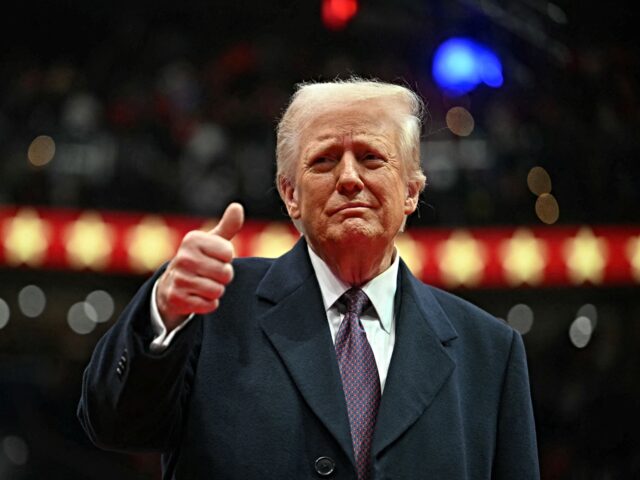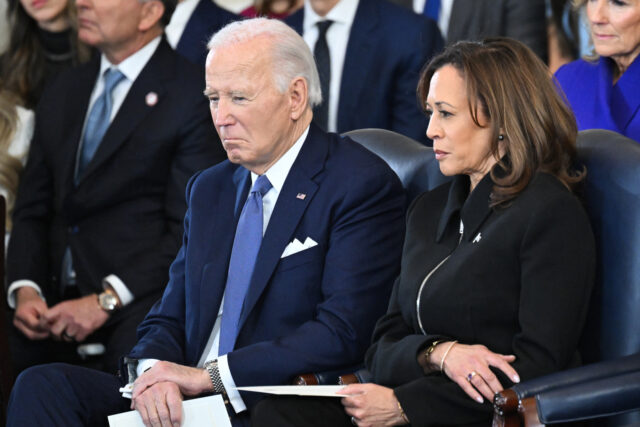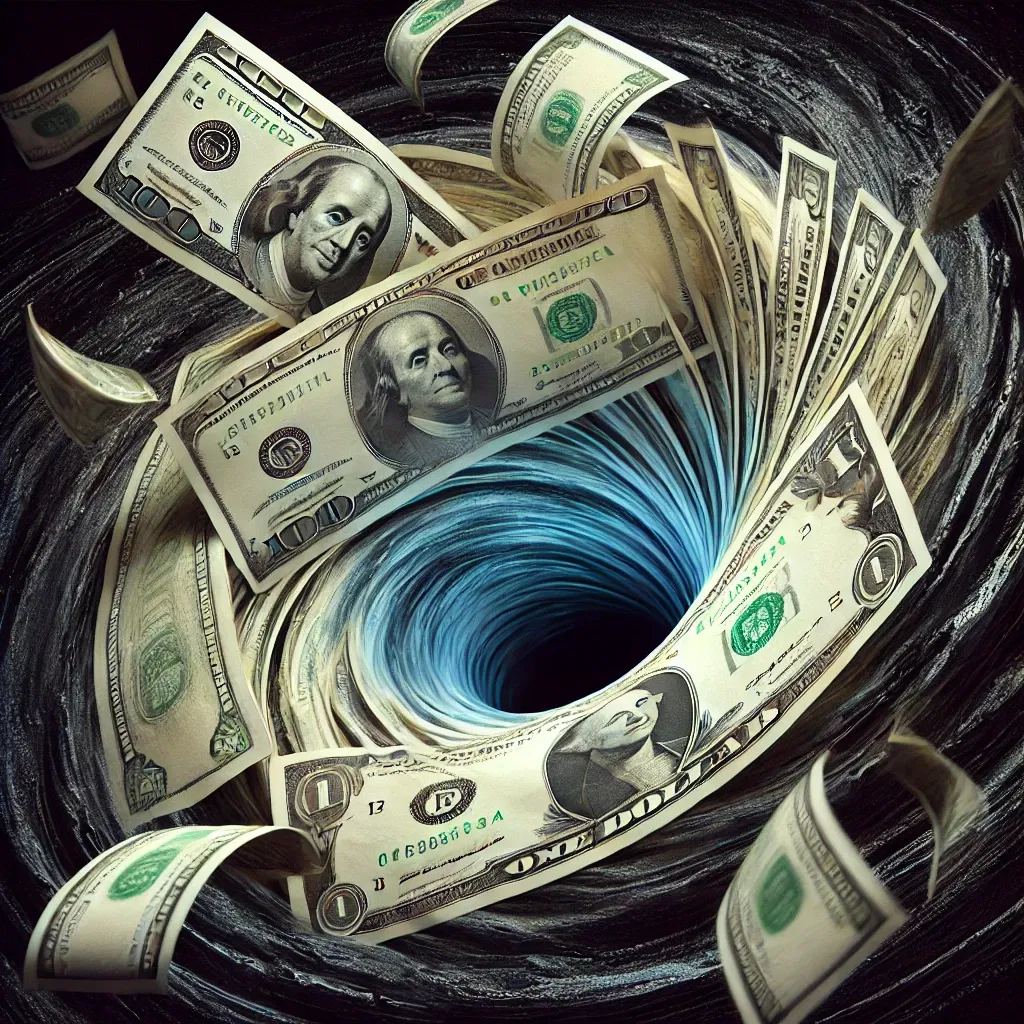from CNBC Television
Milei’s First Year: Liberty, Less Regulation, Low Inflation
One year into his presidency, Javier Milei has outperformed any reasonable expectations, except perhaps his own.
by Michael Munger
The Daily Economy
 There’s something happening here. What it is, ain’t exactly clear.
There’s something happening here. What it is, ain’t exactly clear.
Around the world, there is growing impatience with the orthodoxies and condescension of the progressive left. In the past two years, right-leaning parties have outperformed electoral expectations in Belgium, France, Germany, Italy, the Netherlands, and Portugal, and countries such as Hungary, Poland, and — again — the US.
But the country with the most happening, and the least clarity, is almost certainly Argentina. Just over a year ago, Javier Milei won the presidency in what may be the most “out of nowhere” election ever. It is tempting to lump Milei’s success in with the general electoral tilt to the right, but that’s not correct; Milei is different. As a podcast produced by The Economist, put it: “Milei is above all a zealous believer in free-market economics. That is his absolute guiding understanding.”
What Trump’s Tariffs Did Last Time (2018-2019): No Impact On Inflation, Doubled Receipts From Customs Duties, and Hit Stocks
by Wolf Richter
Wolf Street
 I watched this stuff last time, amazed by the lack of inflation. Sure, “This time it’s different,” but those are the four most costly words on Wall Street.
I watched this stuff last time, amazed by the lack of inflation. Sure, “This time it’s different,” but those are the four most costly words on Wall Street.
President Trump has now started implementing his promise to impose new or additional tariffs on goods from various countries, starting with China, Canada, and Mexico. Trump already imposed tariffs in 2018 against various countries. Now, once again, the media are all over how prices are going to jump for consumers because tariffs are a “regressive consumption tax,” and how tax receipts from tariffs won’t go up, etc. etc.
Now we’ll look at what tariffs did and didn’t do last time. One, they didn’t trigger inflation, which stayed below the Fed’s target. Two, they more than doubled tax receipts from customs duties. And three, they hit stocks, and the S&P 500 tanked 20% in 2018.
Americans More Bullish on U.S. Economy Under Trump
by Simon Kent
Breitbart.com
 Promise made, promise kept. That is the overwhelming feeling for Americans under President Donald Trump as they are more bullish on the U.S. economy and the stock market while being more hopeful about crushing inflation and borrowing costs than they have been in 10 years or more, a Gallup poll showed on Monday.
Promise made, promise kept. That is the overwhelming feeling for Americans under President Donald Trump as they are more bullish on the U.S. economy and the stock market while being more hopeful about crushing inflation and borrowing costs than they have been in 10 years or more, a Gallup poll showed on Monday.
Overall Americans’ current outlook on the stock market is the most optimistic Gallup has recorded, while the percentages expecting interest rates, unemployment, and inflation to worsen are among the lowest.
Reuters reports some 53 percent of Americans predicted the U.S. economy will grow over the next six months, based on telephone interviews conducted in the first two weeks of January with about 1,000 adults, Gallup polling revealed. That’s more than in any of its polls since 2005.
Europe Doubles Down On Stagnation at Davos
by Daniel Lacalle
Mises.org
 Many market participants appeared astonished to learn that Von Der Leyen and Scholz in Davos were steadfastly pursuing the policies that have severely damaged the EU. However, this is typical bureaucratic behavior.
Many market participants appeared astonished to learn that Von Der Leyen and Scholz in Davos were steadfastly pursuing the policies that have severely damaged the EU. However, this is typical bureaucratic behavior.
In a predictable move, EU bureaucrats have chosen to exploit the new Trump administration as an external enemy, rather than seizing the opportunity to unleash the immense potential of their economies. Bureaucrats do not care about results; they care about bureaucracy.
Ursula Von Der Leyen expressed her unwavering commitment to upholding the European Union’s climate and economic strategies when she asserted that “Europe will continue on its current path,” a stance marked by stagnation, high taxes, low competitiveness, and excessive debt. The Paris Agreement continues to be the best hope of all humanity,” she repeated. “Europe will stay the course and keep working with all nations that want to protect nature and stop global warming.” This statement is simply incorrect.
Bidenflation’s Last Gasp? December Data Shows a Jump in PCE Inflation
by John Carney
Breitbart.com
 The pace of inflation picked up in the final full month of Joe Biden’s presidency, capping off the worst burst of soaring consumer prices in forty years.
The pace of inflation picked up in the final full month of Joe Biden’s presidency, capping off the worst burst of soaring consumer prices in forty years.
The personal consumption expenditures price index rose by 0.3 percent in December, an acceleration from the 0.1 percent increase in November. Over the course of 2024, the index—which is the Fed’s favored measure of inflation—rose 2.6 percent, still well-above the Fed’s two percent target.
After excluding volatile food and energy prices, “core” inflation rose 2.8 percent last year, including a 0.2 percent rise in December. In November, core inflation rose 0.1 percent.
The Federal Reserve indicated this month that wants to see more evidence that inflation is easing before cutting interest rate cuts again. Officials have said they want to see how Donald Trump’s economic policies—including tax cuts, deportations and border control, tariffs, and deregualtion—will effect the economy before they make further policy moves. Investors currently expect the Fed to cut one or two times this year.
With Trump Imposing Tariffs, Suddenly the Media is Concerned About Inflation
by Jack Hellner
American Thinker
 President Trump is imposing tariffs on Canada, Mexico, and China to force them to help the U.S on illegal immigration and drug trafficking.
President Trump is imposing tariffs on Canada, Mexico, and China to force them to help the U.S on illegal immigration and drug trafficking.
The media and other Democrats are complaining that it will cost Americans more than $800 even though Trump’s tariffs in his first term caused little if any inflation — tariffs don’t cause inflation, government money-printing does.
During the election they predicted the cost would be $4,000. Historical results mean little to Democrats.
Somehow the media campaigned to reelect Democrats even though their monetary policies, printing cash like there was no tomorrow, caused more than 20% inflation in four years. That means a family spending $70,000 in 2020 would have had to spend $14,000 more per year just to keep up but somehow they are now worried about $800 more?
Inflation Festers in Core Services, No Progress in Twelve Months. PCE Price Index Accelerates for Third Month: Justifies Fed’s Pivot to Wait-and-See
by Wolf Richter
Wolf Street
 In a broader sense, there has been no progress at all on inflation in eight months.
In a broader sense, there has been no progress at all on inflation in eight months.
The sharply falling prices since mid-2022 of energy such as gasoline, and durable goods, such as motor vehicles, had contributed a lot to the cooling of inflation measures. But prices cannot fall forever – they can rise forever, but they cannot fall forever, and they stopped falling. And on top of it, services inflation has gotten stuck in mid-2024 at too high levels.
As a result, overall inflation indices, including the PCE price index released by the Bureau of Economic Analysis today, have started accelerating again on a year-over-year basis. The driver of inflation has been and still is in “core” services, which, at 3.8% year-over-year for the core services PCE price index, remains substantially higher than before the pandemic (yellow in the chart below).
The Government Lost 36% of Your Money Last Year
by James Hickman
Schiff Sovereign
 In a 2022 interview, then-Transportation Secretary Pete Buttigieg discussed how we was going to spend $1.2 trillion of taxpayer money from the recently passed infrastructure bill.
In a 2022 interview, then-Transportation Secretary Pete Buttigieg discussed how we was going to spend $1.2 trillion of taxpayer money from the recently passed infrastructure bill.
“The main thing I’m thinking about,” he said, “is how do we make sure we take all this money— you know it’s $1.2 trillion— and actually deliver $1.2 trillion dollars worth of value. . .”
That whole way of thinking is just astonishing.
If you invest $1 million in a business, you’re obviously going to expect that the CEO will deliver a lot more than $1 million in value from that investment. In fact a good executive will be able to turn a $1 million investment into tens or hundreds of millions of dollars in value.
But a couple years ago, when he was still Transportation Secretary, Pete encapsulated the government’s approach to investing. They’re not looking to get a 100x, 10x, or even 2x return.
Inflation Stayed at 2.8% in December, Per Fed’s Preferred Metric – ‘Further Progress’ Needed for Rate Cuts
Inflation has stalled above policymakers’ 2% target, according to data released Friday morning, bolstering the case for the Federal Reserve’s decision earlier this week to pump the brakes on its interest rate cutting campaign.
by Derek Saul
Forbes
![]() Key Facts
Key Facts
– The personal consumption expenditures (PCE) index was up 2.6% last month compared to November and 0.3% compared to December 2023, according to the Commerce Department.
– Median economist forecasts called for 2.6% annual PCE increase and a 0.3% month-over-month increase for the measure which tracks Americans’ monthly spending on consumer goods and services, according to Dow Jones data.
– Core PCE, which excludes the index’s more volatile food and energy categories, was 0.2% higher last month than it was in November, meeting economist estimates of 0.2%.
Shop Like It’s 2020: How to Roll Back Five Years of Inflation at the Mall
by Daniel de Visé
USA Today
Prices at the mall are about one-fifth higher now than before the pandemic, thanks to cumulative inflation.
Want to spend like it’s February 2020? Try switching stores.
ALDI, the discount supermarket chain, released a report in January that makes a bold claim: Shoppers can save as much as 36% on groceries by taking their business to ALDI. The analysis compared supermarket prices in five large metro areas.
The report might be self-serving, but it captures the zeitgeist for many shoppers in 2025: Consumers are looking for ways to roll back half a decade of inflation.
